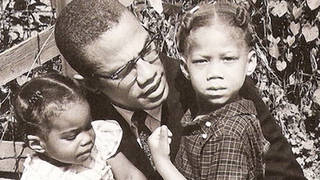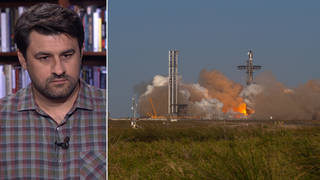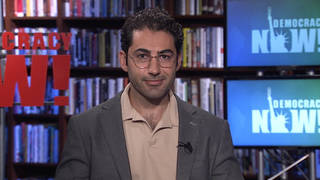On Capitol Hill, Senators voted along party lines Thursday for a historic rule change that will allow Supreme Court justices to be confirmed by a simple majority. The 52-48 vote ended a Democratic-led filibuster aimed at blocking Neil Gorsuch’s confirmation, clearing the way for a Senate vote today on President Trump’s pick for the Supreme Court. Republican Senate Majority Leader Mitch McConnell said the move was necessary to break a stalemate.
Sen. Mitch McConnell: “Our Democratic colleagues appear poised to block this incredible nominee with the first successful partisan filibuster in American history. It would be a radical move, something completely unprecedented in the history of our Senate.”
McConnell’s comments came more than a year after he led his Senate colleagues on a campaign to refuse to even consider President Obama’s pick for the Supreme Court, Merrick Garland. Democrats quickly condemned the move by their Republican colleagues to end the filibuster in Supreme Court confirmations—the so-called nuclear option. This is Senate Minority Leader Chuck Schumer of New York.
Sen. Chuck Schumer: “The nuclear option means the end of a long history of consensus on Supreme Court nominations. It weakens the standing of the Senate as a whole, as a check on the president’s ability to shape the judiciary. In a post-nuclear world, if the Senate and the presidency are in the hands of the same party, there’s no incentive to even speak to the Senate minority. That’s a recipe for more conflict and bad blood between the parties, not less.”
A final confirmation vote for Neil Gorsuch is set for today. He’s expected to be confirmed as a Supreme Court justice, replacing Justice Antonin Scalia nearly 14 months after Scalia’s death.











